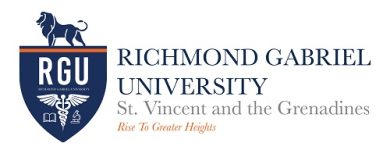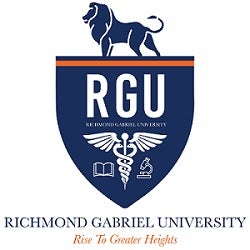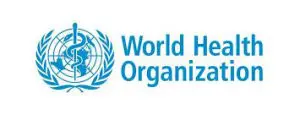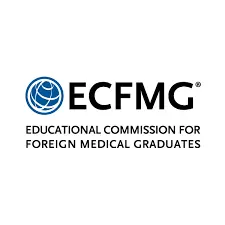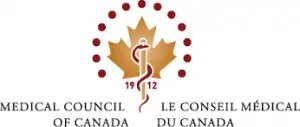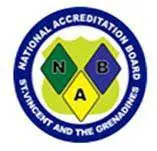AdmissionS process overview
M.D. Degree Requirements
M.D. Application Process Overview
Richmond Gabriel University seeks students who demonstrate a strong drive and desire to succeed and achieve, while still being able to maintain a focus on the compassionate and humanitarian aspects of the field. Students must demonstrate a commitment to excellence, a perseverant work ethic, strong morals, and a positive attitude. Students must demonstrate their active desire to participate in the field of healthcare in service of a higher cause – applicants must not regard the degree as simply leading to a trade to be learned, but must convey a motivation to rise to greater heights within the noble profession of healthcare.
Grades are not the only criteria for acceptance. Although the greatest weight is placed upon a student’s scholastic record, there are many additional factors that are taken into consideration during the admission process. Interviews facilitate the admission process and help the admission committee to determine a student’s demeanour, educational level and degree of commitment. Prospective students and applicants are encouraged to present a strong case for themselves through outlining their work or volunteer experience, community contributions and scholastic achievements in their personal essay and by providing strong letters of recommendation. Motivation and perseverance are some of the attributes considered when selecting a applicant.
Steps to Admission
Select Your Program
Gather Required Documents
Submit Application
Admissions Committee Review
Interview
Communication Of Decision
M.D. Degree Program Requirements
Richmond Gabriel University offers four- and five-year Doctor of Medicine Degree programs. RGU is in St. Vincent and the Grenadines and has students and faculty from across the globe. At RGU, we recognize the diversity in our student population and the need to provide a service and training to prepare our graduates to practice medicine anywhere in the world.
5 YEAR MD DEGREE
The five-year Doctor of Medicine program starts with an eighteen-month (4 semesters) premedical or undergraduate degree which fulfils the 90 credit hours prerequisite criteria to be eligible for entry to the four-year medical degree program.
Requirements:
- Strong science background
- High School Diploma/CXC/GCE O’ Levels/IGCSE with a minimum of 6 subjects which include: Biology, Chemistry, Physics, Maths and English.
- GCE AS or A Levels/CAPE/Community College graduate with at least 2 science subjects.
- At least 17 years of Age at the time of Matriculation.
- Computer Literacy: Basic computer knowledge is required
- MCAT Score is not required.
- English Language Requirement – If English Language is not the first language of the applicant, then he/she must submit acceptable scores on one of the following English Assessments:
- TOEFL – 600 (Paper-based), 250 (computer-based), or 100 (internet-based).
- IELTS – Score of 7.0 on each band
- C1 Advanced – Score of 186 overall
- PTE Academic – Score of 85 or better.
- Password Skills – scoring same as IELTS.
4 YEAR MD DEGREE
The Doctor of Medicine degree program consists of two phases:
- Basic Medical Sciences Phase – five (5) semesters of in classroom training at campuses in St. Vincent and the Grenadines.
- Clinical Sciences Phase – Eighty (80) weeks of clinical rotations with all core rotations completed at accredited teaching-based hospitals in USA and Caribbean.
Requirements:
- Degree: An undergraduate or College degree in a science related discipline with at least 90 credits in the following coursework.
- A strong science background is imperative.
- Cumulative GPA of 2.7 or higher
- Required Coursework:
- Two semesters of Biology or Zoology with labs
- Two semesters of Inorganic Chemistry with labs
- Two semesters of Organic Chemistry with labs
- One semester of Biochemistry may substitute for one semester of organic chemistry.
- Two semesters of Physics with labs
- Two semesters of Mathematics (Calculus, Computer Science or Statistics)
- One semester English
- The Admissions Committee strongly recommends:
- Two semesters of social sciences (sociology, psychology etc)
- Courses such as Biochemistry, Physiology etc in preparation for medical school.
- Experience in Research is recommended but not required.
- Computer Literacy: Basic computer knowledge is required
- MCAT Score is not required.
- English Language Requirement – If English Language is not the first language of the applicant, then he/she must submit acceptable scores on one of the following English Assessments:
- TOEFL – 600 (Paper-based), 250 (computer-based), or 100 (internet-based).
- IELTS – Score of 7.0 on each band
- C1 Advanced – Score of 186 overall
- PTE Academic – Score of 85 or better.
- Password Skills – scoring same as IELTS.
Required Documents For Application
The following documents must be submitted with the application form before a decision is made regarding acceptance into the University.
- Official Transcripts – Submitted directly to the Registrar’s Office from the applicant’s previous educational institution(s).
- Unofficial transcript can be used to initiate the application process.
- Credits will not be awarded from an unofficial transcript.
- Personal Statement – minimum one-page typed essay titled “Why I want to be a Doctor”.
- A Police Clearance from the country of residence in the last six months. Police clearance must be issued within the past 3 months.
- Two letters of recommendations
- References must be from non-relatives and reflect the academic and professional qualities of the applicant.
- References must be generic or addressed to the university.
- Letters addressed to other institutions or companies will not be accepted.
- Copy of passport Bio Data page or Government issued ID with a photo.
- Application fee – a non-refundable US $100 application fee is due upon submission of an application.
- Student Health History and Immunization Form – Must be submitted at least 2 weeks prior to registration to the following email: immunization@RichmondGU.org
NB: Students are required to have two different Government issued photo identifications to open a bank account in St. Vincent and the Grenadines.
Credit Validity Statement
Additional Requirements
REQUIRED BACKGROUND CHECKS
UNDERGRADUATE AND BASIC MEDICAL SCIENCES
All students admitted into the University’s programs are required to submit a valid police clearance from the country of residence in the last six months. The police clearance must be submitted to the Passports and Immigration Department during the Registration week on campus.
CLINICAL CLERKSHIPS
All clinical students are required to do and submit a background check prior to starting clinical rotations. This is a requirement for hospitals and clinical sites. The requirements from our three-primary clinical rotation sites are listed below:
- United States of America – background check of your residence or stay in the USA.
- Jamaica – police report from the country of residence for the last three months or the country from which you will come prior to arriving in Jamaica.
- United Kingdom – detailed background check of your residence in St. Vincent and the Grenadines done through MAF Background Screening.
HEALTH AND IMMUNIZATION REQUIREMENTS
All students entering the Doctor of Medicine degree program are required to complete a Student Health History form and provide documentation of all required immunizations and a physical examination by a Healthcare Professional prior to matriculation and prior to clinical clerkship. The form must be signed by a healthcare provider and returned to the Office of Student Affairs prior to registration.
The required immunizations will be:
- Mumps, Measles and Rubella (MMR):
- Hepatitis B:
- Tetanus/Diphtheria/Pertussis:
- Varicella:
- Polio:
- Tuberculosis (TB)
- COVID-19 Vaccine
For full details please review our Health and Immunization and the COVID-19 Vaccination Protocol requirements on our Policies Page.
IDENTIFICATION
Students are required to have 2 different Government issued photo identifications to open a bank account in St. Vincent and the Grenadines.
Transfer Students Accepted
Richmond Gabriel University accepts transfer students into its program, to learn more click here.
Frequently Asked Questions
The minimum requirement to apply to the 5 year MD program is a high school / secondary school diploma with strong grades in the following required prerequisite courses: Biology, Chemistry, Physics, Mathematics or Calculus and English.
If you are unsure if you qualify please email admissions@richmondgU.org for more information.
Students who have completed some of the prerequisites or that have university courses equivalent to some of the prerequisites can transfer their credits. They then can gain admission into the 5 Year MD degree program and complete the remaining required courses through the Premedical component. The length of the Premedical program will be shortened accordingly.
For example, if a student has mathematics and English at an university/undergraduate level, he or she can transfer the credits and complete the missing prerequisites such as physics, chemistry and biology through the premedical component.
If you are unsure if you qualify please email admissions@richmondgu.org for more information.
There is currently is no entrance examination requirement for admission.
For students from North America, a Medical College Admission Test (MCAT) score is not required but if available may provide an applicant an added advantage in the selection process.
RGU offers one of the most affordable medical school tuition fees.
We also offer scholarship opportunities based on academic performance, personal experience and financial need.
After you submit your application online our admissions office will review your grades, essay and recommendation submitted to see if you qualify for a scholarship.
Students applying to study Medicine at All Saints University, College of Medicine, St Vincent and the Grenadines must possess the requisite academic qualifications and meet the required technical standards as outlined by the University. Medicine is a challenging profession that is physically and mentally demanding and requires that healthcare professionals place the interest of their patients above their own. Throughout their studies, students will develop the necessary skills and qualities that will allow them to cope with a demanding career. It is important that students possess certain necessary qualities which will allow them to function adequately in their studies and also in their career.
MOTOR AND TACTILE FUNCTION
Students must possess adequate motor function to be able to participate in all didactic and practical sessions, such as attendance in class, seminars, laboratory sessions, physical examinations and cardiopulmonary resuscitation etc.
COMMUNICATION
Students must be able to clearly and effectively communicate with patients, staff and other health care providers in a patient-oriented setting, such as the hospital or clinic. Students must be able to recognize and process non-verbal communication, such as changes in mood.
PROFESSIONALISM
Students are required to conduct themselves in a manner consistent with the ethics of the Medical profession. They are to exercise good judgement under stress or uncertainties in the care of their patients. Students must always exercise professional decorum and avoid copyright infringement. Students must be forthright, emotionally stable, and respectful of patients, peers and other members of the healthcare team at all times.
CONCEPTUAL, ANALYTICAL AND QUANTITATIVE ABILITIES
Students must be able to memorize, recall and explain Medical and relevant concepts. They must be able to calculate, analyse and interpret data which form part of the Medical School curriculum. Students must also be able to understand spatial and three-dimensional relationships, such as those encountered in the dissection laboratory sessions.
OBSERVATION
Students must have functional use of their senses of vision, hearing, smell and touch, as well as somatic sensation. These skills are required for students to be able to observe demonstrations, experiments and simulations in the basic and clinical sciences. Students must also be able to assess a patient’s physical condition, obtain a patient’s history, perform relevant physical examinations, and develop a differential diagnosis and treatment plan for their patients.
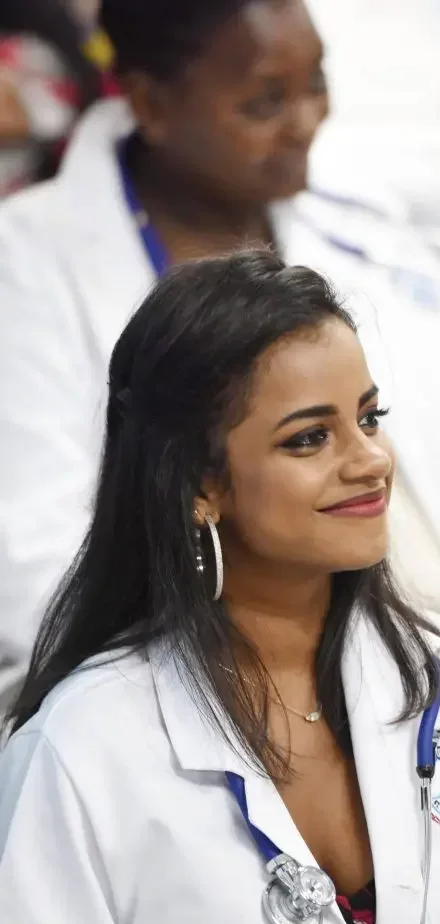
Application Process
ONLINE APPLICATION SUBMISSION
All persons eligible for the Medical degree program are required to submit their application and supporting documentation online. The online application form is available here: https://allsaintsu.org/application/ . Applications are accepted throughout the year. It is a program of three-semesters per academic year.
INTERVIEW PROCESS
After submitting the completed online application form, required supporting documents and application fee, the Admission Department will review your submission. Applicants who have met the initial criteria for admission will be subject to an in person or video interview process before the final decision is made for admission and scholarship program eligibility. candidates who have demonstrated all competencies and core values to be successful in the program will be granted admission to the university.
COMMUNICATION OF DECISION
The Admission Committee’s decision will be communicated within 2 to 4 weeks via email. A hard copy will be sent through regular mail as well. Applicants are encouraged to contact the admission office from time to time for updates on the status of their application.
ACCEPTANCE
A student’s acceptance into Richmond Gabriel University, St. Vincent and the Grenadines is granted by the Admissions Committee. Accepted students are those who have satisfied the minimum criteria or exceeded the required standards as set forth by the Institution.
Every student accepted into the program will be given a letter of acceptance issued by the Admissions Committee via email. Students who qualify for the RGU Scholarship Program will receive a scholarship letter, in addition to the letter of admission via email. Students must reply to the admissions email sent confirming their intent to enroll and provide a copy of the signed scholarship letter to the Admissions Office within 2 weeks of the issued date.
Acceptance into the University is based on the presumption that all documents submitted during the admissions process are accurate and legal. If any document is found to be fraudulent, Richmond Gabriel University, St Vincent and the Grenadines will immediately terminate the application process. If the student is already registered, then s/he will be dismissed from the institution. If a degree had been conferred, it will be revoked.
Following final acceptance of admission into the program, successful applicants will be contacted by the Accounts Department regarding their tuition fee. Students are advised to pay US$1000 deposit fee for the semester as soon as possible to reserve a seat on the student roster. This amount will be credited against the first semester tuition fee. Fees are due one month prior to commencement of the program.
Transfer Students
Transfer students may only be accepted upon evaluation by the admissions committee of all candidates’ applications and a determination of their eligibility for placement into the program.
Returning Students
RE-ADMISSION & RE-ENROLLMENT POLICY & PROCEDURE
RE-ADMISSION PROCESS
- Submit application form online.
- Submit all supporting documentation.
- Updated transcripts for any academic work done during the period of absence from RGU.
- Updated Immunization records and health history form.
- Letters of Recommendation written during the past 12 months. These must be from non-family members.
- Personal Statement
- Application processing fee.
- All documents must be submitted by application deadline.
ALL students re-applying to the University will be subjected to the full admissions process conducted by the Admissions Department. This includes an interview conducted by the Admissions Officer or faculty member.
If a student wishes to defer their admissions process, the student must provide strong supporting documentations to validate the reason for deferment. Deferment will only be granted for a maximum of 2 semesters, after which the student must re-apply for admissions to the program.
RE-ENROLLMENT PROCESS
All students considered for re-enrollment must follow the outlined procedure given below:
- Students returning from an interrupted enrollment must first meet with the Dean of Student Affairs to discuss the circumstances surrounding the interrupted enrollment and resolutions made to allow for return to study.
- Upon approval, Students must then contact the Office of the Registrar to initiate the re-enrollment process. Correspondence will also be sent from the DOS to the Registrar conveying the decision.
- All students are held to the admissions regulations and requirements in effect at the time of their return.
- Students must provide updated information and any transcripts for work completed during their time away from the program.
- Re-enrollment does not void the 6-year limitation for completion of all degree requirements.
DIVERSITY AT RGU
Richmond Gabriel University, St. Vincent and the Grenadines is committed to ensuring an atmosphere of inclusion, equity and diversity among all students at the University. We view diversity as encompassing race, ethnicity, socioeconomic status, religion, gender, sexual orientation and disability. These attributes play an important role in our life and influence our approach to patient care and healthcare in general. Students who understand the importance of equity and inclusivity are better able to deliver compassionate, unbiased, cross cultural healthcare to a diverse, multi-cultural and under-represented population. The University has an international student population that is representative of a broad range of countries, races and religions. An environment which places emphasis on inclusivity is essential to the achievement of diversity, and is important to the success of our students, Faculty and staff.
An enormous amount of emphasis is placed on the undermentioned guiding principles:
- The continuous recruitment and retention of students from a diverse background.
- The Student Union Government hosts programs such as Diversity Night and Culture Day which support the diversification of the student population.
- The University provides financial aid in the form of scholarships to students throughout their studies to assist with the success and retention of financially challenged students.
- The University will host events and programs which support the diversity of students, Faculty and staff.
DISABILITIES
Richmond Gabriel University, St Vincent and the Grenadines follows the recommendations of the United States “American with Disabilities Act” (ADA). However, our school is situated on a Caribbean Island that has certain limitations which may prevent us from accommodating certain disabilities. Students who have physical or learning disabilities should speak with the Office of Student Affairs concerning the provisions available for students with disabilities. Students with disabilities and who are seeking special considerations must submit proper documentation to the Office of the Registrar and the Office of Student Affairs for evaluation and special consideration. The documentation must be provided by a registered Licensed Practitioner and the medical evaluation report must be no more than one year prior to the time of application to the University. Upon acceptance, if necessary this information will be shared with the Housing Coordinator to ensure that the student is placed in an accommodation that caters to their needs.
TECHNICAL STANDARDS FOR ADMISSIONS, PROMOTIONS AND GRADUATION
POLICY
Students applying to study Medicine at Richmond Gabriel University must possess the requisite academic qualifications and meet the required technical standards as outlined by the University. These Technical Standards must be met with or without accommodation and are essential for admission to, promotion within and graduation from the Doctor of Medicine Degree program from RGUSVG.
Medicine is a challenging profession that is physically and mentally demanding and requires that healthcare professionals place the interest of their patients above their own. Throughout their studies, students will develop the necessary skills and qualities that will allow them to cope with a demanding career. It is important that students possess certain necessary qualities which will allow them to function adequately in their studies and in their career.
MOTOR AND TACTILE FUNCTION
Candidates must possess adequate motor functions to participate in all didactic classes, perform physical examinations and diagnostic maneuvers. Their motor and tactile skills must be sufficient to respond in a timely manner and provide general and emergency care to patients. These skills develop over time and requires the candidate to have physical mobility, gross and fine motor neuromuscular functions as well as balance and equilibrium.
COMMUNICATION
Candidates must be able to communicate with patients, their families, healthcare staff and colleagues and other persons clearly and effectively in a patient-oriented setting, such as the hospital or clinic. Candidates are required to have a strong command of the English Language. Candidates must be able to obtain a patient history, recognize and process non-verbal communication such as changes in mood, and establish a therapeutic relationship with patients.
PROFESSIONALISM
Candidates and students are required to conduct themselves in a manner consistent with the ethics of the medical profession. They are to exercise good judgement under stress or uncertainties in the care of their patients. Students must always exercise professional decorum and avoid copyright infringement. Students must be forthright, emotionally stable, and respectful of patients, peers, and other members of the healthcare team always. Substance abuse is not appropriate and not permitted for medical students as it reflects poor judgement that can affect personal lives, professional careers, and the lives of our current and future patients and their families.
CONCEPTUAL, ANALYTICAL AND QUANTITATIVE ABILITIES
Candidates must be able to assimilate complex medical concepts presented in the medical curriculum. They must be able to learn through a variety of modalities such as classroom instruction, small group activities, individual studies, presentation of reports, simulations, and use of computer/digital technology. Students must be able to calculate, analyze and interpret data and explain difficult concepts. Students must also be able to understand spatial and three-dimensional relationships, such as those encountered in the dissection laboratory sessions. They must also be able to formulate and test hypotheses, diagnose, and treat patients in a variety of clinical settings.
OBSERVATION
Students must have functional use of their senses of vision, hearing, smell, and touch, as well as somatic sensation. These skills are required for students to be able to observe demonstrations, experiments, and simulations in the basic and clinical sciences. Students must also be able to assess a patient’s physical condition, obtain a patient’s history, perform relevant physical examinations, and develop a differential diagnosis and treatment plan for their patients.
BEHAVIORAL AND SOCIAL ATTRIBUTES
Candidates must demonstrate maturity and emotional stability required for full use of their cognitive abilities. They must also show characteristics of honesty, integrity, conscientiousness, and empathy. Candidates must be able to interact with patients, their families, colleagues, and everyone they work and meet, in a professional and respectful manner. Candidates must understand the legal and ethical aspects of the practice of medicine and function within both of those confines in the medical profession. They must accept responsibility for their learning, be able to accept constructive feedback and be willing to make appropriate positive changes for their personal and professional development. Candidates must be capable of tolerating taxing workloads and function in a competent and professional manner in stressful situations. Candidates for the MD degree must exercise good judgement.
PROCEDURE
In evaluating applicants for admission and in preparing candidates for the M.D. degree, it is essential that the integrity of the curriculum be maintained. Those elements deemed necessary for the education of a physician be preserved and that the health and safety of patients be maintained. While reasonable accommodation can be made for certain disabilities on the part of the student or candidate, those candidates and students who are disabled will be held to the same fundamental standards as their non-disabled peers.
Richmond Gabriel University College of Medicine will consider for admission any candidate who demonstrates the ability to perform the skills and abilities specified in these technical standards with or without reasonable accommodation consistent with the Americans with Disabilities Act. Candidates for the M.D. degree will be assessed on a regular basis according to the Academic Standards and the Technical Standards of the College of Medicine on their abilities to meet the requirements of the curriculum.
SCOPE This policy applies to all students who are accepted and/or enroll into the Medical Education Program.
Implementation of Technical Standards in the Admissions Process.
All applicants for admission to the College of Medicine will be evaluated according to the same standards and criteria outlined in the Technical Standards. Although these standards serve to delineate the necessary physical and mental abilities of all candidates, they are not intended to deter any candidate for whom reasonable accommodation will allow the fulfillment of the complete curriculum.
Implementation of Technical Standards during Degree Candidacy
Should a candidate have or develop a condition that would place patients, the candidate, or others at risk or that may affect his/her need for accommodation, an evaluation conducted by a certified appropriate medical provider followed by the submission of a documented and
written recommendation of required accommodations must be provided to the Office of the Dean of Student Affairs.
The Dean of Student Affairs, the Dean of the College and, if needed, the Dean of Admissions would review the student assessment and requested accommodations carefully. A complete and careful reconsideration of all the skills, attitudes, and attributes of each candidate will be performed. This includes an assessment of his/her willingness, desire, and ability to complete the medical curriculum and fulfill all requirements for medical licensure and will be informed by the knowledge that students with varied types of disabilities have the ability to become successful medical professionals.
Review of Technical Standards
The standards are reviewed, revised as needed, and reconfirmed by the Curriculum Committee annually. This review takes into account the College of Medicine’s ongoing curriculum and clinical standards evaluation, and changes in applicable law and/or University policy.
